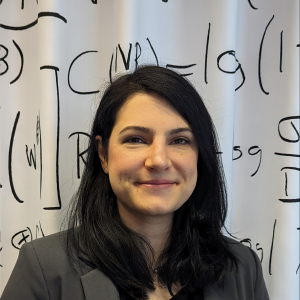
Humanizing the Sustainable Smart City eXtended (HISSx)
Objective
The main goal of the extension HiSSx is to plan for long-term scientific and societal impact by establishing a new transdisciplinary research centre on a human-centric smart built environment. Three specific tasks have been identified to reach this goal:
- Societal and industrial stakeholders engagement, based on active dissemination of the project HiSS and the identification of the most relevant stakeholders to create a reference group to maximize the exploitation of the results and the impact of the planned research centre;
- Research program development, aiming at the definition of innovative research areas and a strategic research plan;
- Consortium creation and centre implementation, shaping a consortium for a centre on human-centric cyber-physical systems for a smart built environment.
Background
The building sector accounts for over one-third of global energy consumption and emissions; therefore, transforming the built environment is urgent to achieve the societal climate and sustainability goals by 2030. Traditional solutions for smart and sustainable buildings and cities have focused and prioritized the technological perspective, overlooking the human dimension and leading to sub-optimization. The project HiSS tackled this complex, unresolved, and cross-disciplinary challenge addressing human decision-making and behaviour in complex environments like smart buildings. Using a multi-layered system perspective approach, the project HiSS aimed to integrate knowledge, tools, and methodologies from cognitive and behavioural sciences, control, building, and energy technology.
Among multiple success factors, HiSS developed a novel model for choice probability; the project also delved into and made notable contributions to human behavioural modelling, learning and modelling social networks and addressing key limitations in behavioural modelling and control in buildings. These advancements in the study of human behaviour further inspired us to investigate cognitive brain processes and simulate human decision-making in neuroeconomic game scenarios using computational brain models. Joint interest in brain function also sparked a collaborative effort towards a deeper theoretical understanding of how the brain processes input information at the level of neural circuits.
These modelling advancements, together with an innovative data-driven control architecture and the development of a digital twin for smart building testbeds, provided the proof-of-concept of the feasibility of scalable human-centric controls in buildings. These concepts have proven and demonstrated the technical feasibility of the exploitation of human-centric networks and controls in the KTH Live-In Lab, a platform of smart building testbeds and have been integrated into the analysis of policy expectations of households’ role in the smart grid, resulting in identified gaps, where social issues are not accounted for.
Cross-disciplinary collaboration
The cross-disciplinary research team is formed by seven PIs representing three KTH Schools: Electrical Engineering and Computer Science (EECS), Architecture and the Build Environment (ABE), and Industrial Engineering and Management (ITM). The project team will also involve key industrial and societal stakeholders and our external academic collaborators from Technion, Imperial College London and Uppsala University.
Contacts

Marco Molinari
Researcher, Unit of Applied Thermodynamics and Refrigeration at KTH, PI: Humanizing the Sustainable Smart City eXtended (HiSSx), Former Co-PI: Humanizing the Sustainable Smart City (HiSS), Co-PI: Industry 5.0 research towards a circular economy and community building, Co-Chair Working group Digitalized Industry, Digital Futures Faculty
+46 8 790 74 68marcomo@kth.se

Vladimir Cvetkovic
Professor, Resources, Energy and Infrastructure at KTH, Co-PI: Humanizing the Sustainable Smart City eXtended (HiSSx), Former Co-PI: Humanizing the Sustainable Smart City (HiSS), Digital Futures Faculty
+46 8 790 62 90vdc@kth.se

Angela Fontan
Assistant Professor at the Division of Decision and Control Systems, School of Electrical Engineering and Computer Science (EECS), KTH Royal Institute of Technology, Co-PI: Humanizing the Sustainable Smart City eXtended (HiSSx), Co-PI: Analysis and Synergy of Hyper-networked Autonomy at the Societal Scale, Former Postdoctoral researcher at the Division of Decision and Control Systems, KTH Royal Institute of Technology, Former Postdoc of research project Humanizing the Sustainable Smart City (HiSS), Digital Futures Faculty
angfon@kth.se
Pawel Herman
Associate Professor, Computer Science, Division of Computational Science and Technology at KTH EECS, Member of the Executive Committee, Associate Director Strategic Research and Chair of the Strategic Research Committee, Co-PI: Humanizing the Sustainable Smart City eXtended (HiSSx), Former Co-PI: Humanizing the Sustainable Smart City (HiSS), Former Co-supervisor: Intelligence through reasoning, Digital Futures Faculty
+46 8 790 65 13paherman@kth.se

Karl H. Johansson
Professor, Division of Decision and Control Systems at KTH, Director of Digital Futures, Member of the Executive Committee, Member of the Strategic Research Committee, Co-PI: Humanizing the Sustainable Smart City eXtended (HiSSx), Fomer Co-PI: Humanizing the Sustainable Smart City (HiSS), Digital Futures Faculty
+46 73 404 73 21kallej@kth.se

Cecilia Katzeff
Associate Professor, Strategic Sustainability Studies at KTH, Co-PI: Humanizing the Sustainable Smart City eXtended (HiSSx), Former Co-PI: Humanizing the Sustainable Smart City (HiSS), Working group Trust, Digital Futures Faculty
ckatzeff@kth.se
Hedvig Kjellström
Professor, Division of Robotics, Perception and Learning at KTH, Co-PI: Humanizing the Sustainable Smart City eXtended (HiSSx), Former PI: Humanizing the Sustainable Smart City (HiSS), Digital Futures Faculty
+46 8 790 69 06hedvig@kth.se

Mikael Skoglund
Professor and Head of Department, Division of Information Science and Engineering at KTH, Member of the Executive Committee, Associate Director Fellows, ICT TNG Director, Working group Cooperate, Co-PI: PERCy, Co-PI: Humanizing the Sustainable Smart City eXtended (HiSSx), Former Co-PI: Humanizing the Sustainable Smart City (HiSS), Main supervisor: Fast Distributed Learning based on Adaptive Gradient Coding with Convergence Guarantees, Digital Futures Faculty
+46 8 790 84 30skoglund@kth.se


